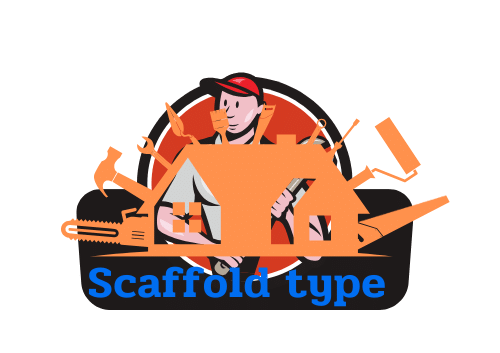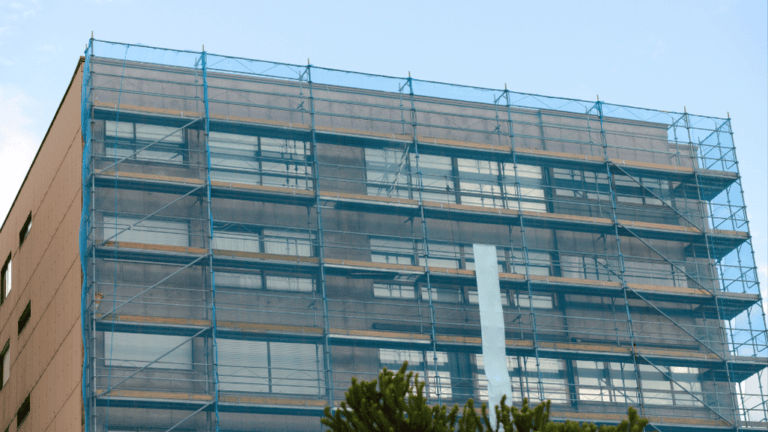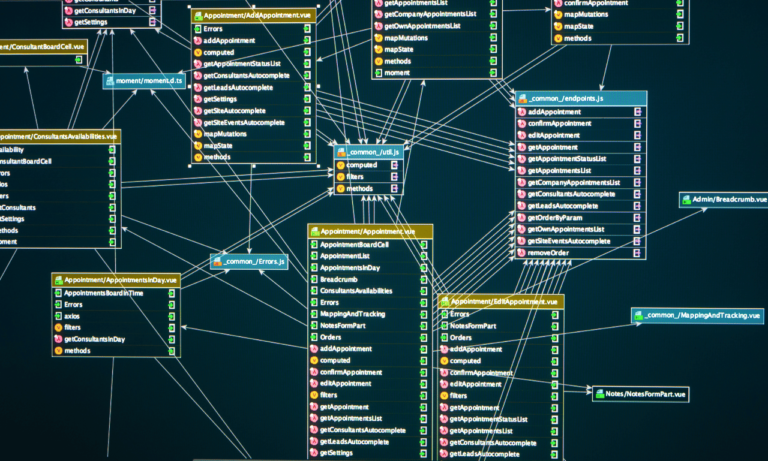Phone:
(+65)8319-0742
The pursuit of educational success in the modern era brings new challenges and opportunities. In recognition of this, various student support programs have been developed to offer more personalized learning experiences. Integral to this development is the rising tide of Assisted Performance in Education, which crystalizes the potential of individualized educational pathways through personalized learning plans designed to meet the specific needs of each student.
These innovative approaches are not just enriching academic experiences but are also setting a precedence for educational institutions globally. Tailored student support programs become a substantial bridge, guiding learners towards success with accuracy and care. Keep reading to discover how these strategies are being implemented to shape a brighter future for learners around the world.
Key Takeaways
- Assisted Performance in Education offers a targeted approach to individual learning styles and needs.
- Personalized learning plans act as pivotal tools for academic achievement and educational success.
- Student support programs provide specialized resources to enhance learning outcomes.
- Technology plays a crucial role in developing and implementing personalized educational strategies.
- Adaptability and responsiveness to student needs are hallmarks of effective educational support systems.
Embracing Educational Technology Solutions for Modern Learning
In a quest to meet diverse educational demands, it is essential to leverage educational technology solutions meaningfully within the classroom. By examining the synergy between technology and hands-on teaching, modern learning environments are being transformed into hubs of innovation and tailored instruction.
Assessing the Impact of Ed-Tech on the Instructional Core
Investigating the role of technology in education reveals its significant influence on the foundational triad of learners, instructors, and curriculum. This educational data analysis aims to understand the dynamic relationship within the instructional core to enhance learning quality. With the aid of performance improvement tools, educators can overcome geographical and resource-related challenges, making quality education accessible even in remote areas.
Empowering Educators and Learners Through Technology Advancement
Technology’s penetration into the education sector facilitates immediate feedback, enabling educators to craft personalized learning plans that resonate with each individual student’s needs. These advancements are imperative for fostering a culture where continuous progress, supported by student progress tracking, can thrive. Technological tools not only elevate the educator’s role but also empower students to achieve their full potential.
Implementing Evidence-Based Tech Interventions for Differentiated Instruction
To drive meaningful change, the introduction of ed-tech must be conscious and deliberate, rooted in proven academic intervention strategies. By harnessing performance improvement tools and methodologies that resonate with the institution’s capacity, differentiated instruction becomes a reality, addressing each student’s unique learning journey.
Educational technology, when employed with a discerning eye towards its impact and scalability, holds the potential to revolutionize how we impart education. It is through such evidence-based interventions that educators can effectively customize their teaching strategies, ensuring that every student benefits from an education that caters to their specific needs and pace, ultimately leading to improved academic outcomes.
Developing Personalized Learning Plans for Student Success

In today’s educational landscape, the creation of personalized learning plans is paramount to ensuring student success. This approach not only accommodates individual preferences and learning styles but also shifts the focus from a one-size-fits-all methodology to one that is custom-tailored for each student’s unique needs. Assisted Performance in Education significantly benefits from the integration of educational technology solutions, allowing for precision in developing and executing these specialized plans.
Customizing Education to Meet Individual Learner Needs
In an effort to provide optimal student support programs, educators utilize educational data analysis to understand and address the specific requirements of their students. By harnessing the power of technology to analyze performance data, schools are equipped to personalize instruction, thus enhancing learning experiences and outcomes.
Adaptive Learning Technologies: Applications and Outcomes
With adaptive learning technologies, personalized education has never been more attainable. These performance improvement tools dynamically adjust the content to match the learner’s proficiency level, paving the way for substantiated progress in various academic areas. Such educational technology solutions have demonstrated considerable efficacy in refining both teaching methods and learning experiences.
Tracking Student Progress for Targeted Academic Support
Student progress tracking is instrumental for academic intervention strategies, offering a clear view of a student’s journey and highlighting areas that may require additional focus. Utilizing sophisticated analytics, educators can swiftly implement targeted remedies to alleviate challenges encountered by students, ultimately leading to higher success rates and a more gratifying educational experience.
| Feature | Benefit | Outcome |
|---|---|---|
| Adaptive Learning Algorithms | Customized Difficulty Levels | Increased Student Mastery |
| Data Analytics | Insightful Learning Metrics | Informed Instruction Strategies |
| Early Warning Systems | Real-time Monitoring of Engagement | Timely Academic Interventions |
Strategic Academic Intervention Strategies to Enhance Performance

Implementing academic intervention strategies is crucial for students who exhibit signs of chronic absenteeism and lack of engagement. Multifaceted approaches have been shown to improve academic prowess by leveraging student support programs and student progress tracking. Family participation and the use of early warning systems significantly contribute to the precise identification of students in need of support, ensuring timely and effective interventions.
One standout model amongst these strategies is the high-dosage tutoring program. Such programs have gained empirical support, with data revealing marked decreases in absenteeism and significant spikes in regular attendance. These interventions are made effective through the quality involvement of extensively trained tutors, the provision of consistent educational support, and the arrangement of small group sessions, all tailored to bolster student learning and engagement.
To ensure these interventions remain dynamic and responsive, continuous assessment and optimization are mandatory. This approach guarantees that academic intervention strategies not only meet immediate educational needs but also aligns with the long-term goal of enriching the academic environment for all students. Below is a table highlighting the core components of high-dosage tutoring, a key academic intervention strategy.
| Component | Description | Impact on Student Performance |
|---|---|---|
| Well-trained Tutors | Tutors with comprehensive training who are adept in subject matter and pedagogy. | Higher quality instruction leading to better student understanding and retention. |
| Consistent Support | Regular and predictable tutoring sessions to establish a reliable learning rhythm. | Improved attendance and academic confidence, reducing absenteeism. |
| Small Group Sessions | Targeted instruction in small groups to facilitate personalized attention. | Enhanced engagement and interaction, allowing for individualized pace and focus. |
| Continuous Assessment | Ongoing evaluation of student progress to inform instruction. | Personalized feedback and adjustments to meet evolving educational needs. |
Moreover, the value of consistent student progress tracking cannot be overstated. This mechanism not only clarifies the effectiveness of the interventions but also provides valuable insights into the education system’s ability to adapt and improve. Ultimately, it facilitates a structured approach that can significantly uplift academic performance and build a more resilient and successful educational framework.
- Family Involvement – Engaging families in the educational process to encourage student participation and attendance.
- Early Warning Systems – Identifying at-risk students early to prevent academic decline through intervention.
- Data-Driven Identification for Support – Using data analytics to target and customize interventions for each student’s needs.
In summary, leveraging comprehensive academic intervention strategies that include student support programs and meticulous student progress tracking is imperative for fostering an educational landscape where each student has the opportunity to succeed and thrive.
Assisted Performance in Education: Leveraging Collaborative Learning Platforms

The emergence of collaborative learning platforms marks a significant shift in educational strategies, fostering environments where student progress tracking and performance improvement tools converge to create a holistic learning experience. These platforms enable students to partake in a shared educational journey, enhancing not only their academic performance but also developing indispensable team-working skills reflective of modern workplace dynamics.
Catalyzing Peer Interaction and Team-Based Problem Solving
Central to the success of collaborative learning environments is the capacity to drive peer interactions that underpin team-based problem solving. Utilizing the inherent benefits of educational technology solutions, these platforms act as beacons for collective intellect, where every student contribution becomes a cornerstone for compounded knowledge building.
Integrating Social Learning in Digital Education Environments
Embedding social learning within digital platforms is not an addition but a necessity for enriched educational experiences. This integration aligns with personalized learning plans, advocating for an educational approach that is both community-centric and individualized. The enhanced peer support that comes from such integration propels not just academic performance but a sense of belonging and group achievement amongst students.
Boosting Engagement Through Interactive and Gamified Learning Modules
Facets of gamification in learning modules are leading the charge in advancing student engagement. Embedding game mechanics within instructional content captures attention and offers a route through which students become active participants rather than passive recipients of knowledge. This dynamic setup empowers leaners and educators, altering the traditional dynamics of the classroom to foster a more interactive, immersive, and enjoyable learning atmosphere.
Conclusion
The journey through the dynamic landscape of Assisted Performance in Education (APE) reaches its culmination with a reaffirmed understanding that the integration of technology in the educational sphere is more than just a trendâit’s a transformative movement. By fostering educational success through innovative tech-driven strategies, APE underscores the crucial development of personalized learning plans, which are instrumental in meeting the learners of today where they stand, ready to elevate them to new heights of academic achievement.
As we’ve examined throughout this exploration, student support programs serve as the backbone of APE, offering a support system that is enriched by the precision and adaptability of technology. The educators’ role, while evolving, remains central to student success, bolstered by resources that enrich their teaching methods and expand their impact. With these tools, the educational experience morphs into an interactive, engaging journey for students, who find themselves at the heart of a learning environment designed to magnify their potential.
In essence, APE is less about the technology itself and more about its capacity to be a conduit for educational equity and excellence. As education systems globally embrace this approach, they craft a promising future landscape where every learner has access to a quality education attuned to their unique needs. Through the careful and considerate implementation of APE, the goal is not just to keep pace with the changing world but to shape learners equipped to lead it forward, fostering a legacy of academic success and lifelong learning.
FAQ
What is Assisted Performance in Education?
Assisted Performance in Education refers to a comprehensive approach that utilizes a mix of educational technology solutions, personalized learning plans, and student support programs to boost individual educational success. It emphasizes the effective use of tech to cater to diverse learning needs, track student progress, and implement academic intervention strategies that are tailored to individual student requirements.
How does educational technology impact the instructional core?
Educational technology can have a profound impact on the instructional core by enhancing teaching methods, allowing for data-driven decision-making, and facilitating learning experiences that are more interactive and engaging. It helps in scaling quality instruction, differentiating individual learning needs, offering extensive practice opportunities, and introducing interactive tools to increase student engagement and motivation.
How are personalized learning plans created for students?
Personalized learning plans are developed by first understanding and diagnosing each student’s specific educational needs, learning styles, and abilities. This involves assessing the available infrastructure and capacities of the educational institution. Adaptive learning technologies help by adjusting the material’s difficulty according to the student’s proficiency, helping them to progress at their own pace while ensuring challenging, appropriate learning experiences.
What roles do academic intervention strategies play in educational technology?
Academic intervention strategies play a crucial role in identifying and addressing specific learning gaps or challenges faced by students. They are evidence-based approaches that may include tutoring, modifications in curricula, use of early warning systems, or engaging family involvement to support the academic growth and achievement of students. These strategies are essential components of the educational technology ecosystem to enhance student performance.
How do collaborative learning platforms contribute to Assisted Performance in Education?
Collaborative learning platforms contribute to Assisted Performance in Education by fostering peer-to-peer interaction, teamwork, and problem-solving skills that are necessary for the 21st-century workforce. They promote social learning, allow students to learn collaboratively, and integrate interactive and gamified elements that make learning more engaging, thereby enriching the educational experience and enhancing student engagement with the material.
Why is tracking student progress important in education?
Tracking student progress is vital for several reasons. It helps educators identify where students may be struggling and provides the data necessary to generate personalized learning plans that meet individual needs. Moreover, progress tracking enables continuous assessment of educational interventions’ effectiveness, ensuring that they make a real difference in students’ educational outcomes.

















